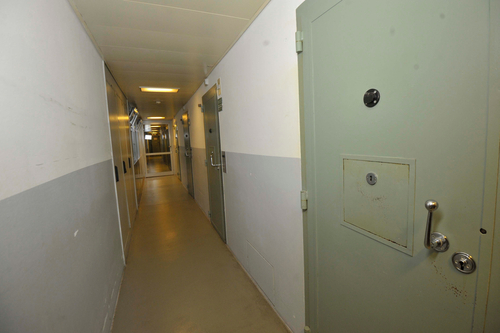EL PAcCTO, together with the Costa Rican Ministry of Justice and Peace and the “Beyond Borders” project, organised the webinar “The importance of a different view of the prison system: humanisation of punishment and alternative measures to prison”. The event, which was attended by over 100 participants, mainly focused on creating a space for debate and awareness regarding the importance of reducing prison overcrowding, as well as of promoting effective reintegration processes to guarantee the decent treatment of people deprived of liberty . This space for exchanging experiences between Europe and Latin America highlighted issues such as the use of alternative measures, social reintegration, APACs (Associations for the Protection and Assistance of Convicts) and restorative justice.
Prisons in the Latin American region have sometimes been used as recruitment centres for organised crime networks, partly due to prison overcrowding in these countries. On this basis, EL PAcCTO promotes alternative measures and inter-institutional coordination, as highlighted in the webinar, since, in the context of prison overcrowding, differentiated treatment that allows the management of those deprived of liberty and the promotion of reintegration is extremely difficult to maintain.
The Costa Rican Minister of Justice and Peace, Fiorella Salazar Rojas, and the Deputy Director of Social Adaptation, Ilse Díaz, participated in the event. In addition, the webinar also featured contributions by the European experts María Muñoz Fernández, Director of Telematic Media with the General Secretariat for the Penitentiary Administration in Spain, and Giuseppe Vinciguerra, from the Italian Ministry of Justice Department of Juvenile Justice. The EL PAcCTO team also took part in the event.
Conclusions
The webinar enabled a number of conclusions to be reached that nurture the synergies between participants and promote cooperation between the different countries, all with the aim of providing a humanised response to prison sentences.
Among these conclusions, it is worth highlighting the need to involve all those who participate in the criminal justice system, so they can act in a coordinated manner (executive and judicial powers, civil society, police, international organisations, etc.). In addition, respect for human rights is a key issue in this matter, and it is also necessary to develop integrated and complementary policies aimed at reducing overcrowding and promoting resocialisation processes. Finally, alternative measures also played a part in the discussion, particularly those aimed at vulnerable groups, such as women, minors and young adults.
